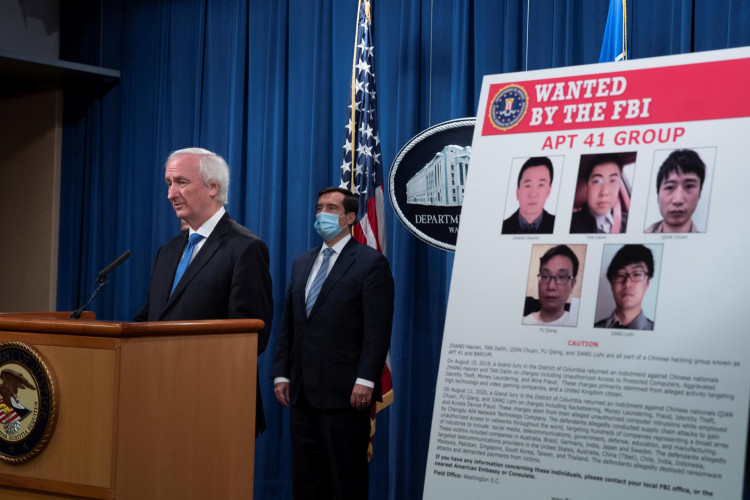The U.S. Department of Justice said it had filed charges against a group of hackers associated with China's government for targeting more than 100 companies and universities - including the billion-dollar online gaming industry, authorities said.
Justice officials Wednesday said they had charged five China nationals and two Malaysia business owners in a hacking operation that included attacks on software and hardware companies, telecommunication companies, pro-democracy groups and social media companies, Bloomberg News reported.
The two Malaysia's citizens have been detainedand charged with aiding the suspected hackers to profit by obtaining in-game items and currencies and selling the digital items in exchange for cash, the Justice department said.
Based on an intelligence report by the Federal Bureau of Investigation, the hackers - part of an organization called "APT41" - were reportedly granted authority by China's government. The U.S. says China was lenient in overseeing hacking by its citizens.
The China government has made a "deliberate choice to let its citizens commit computer intrusions around the world because these people will also help the PRC," U.S. attorney general Jeffrey A. Rosen said according to a United Press International report.
The China consulate in Washington didn't immediately respond to an email requesting comment. China is said to have denied accountability in the hacking incident.
Two of the China defendants - Tan Dailin and Zhang Haoran, both 35 - allegedly worked with two Malaysia citizens - Ling Yang Ching, 32 and Wong Ong Hua, 46 - to sell stolen resources on the black market through unlawful means, Rosen said. The five China men are "fugitives" in China, he said.
The companies that have been targeted include countries outside of the U.S. such as Brazil, Japan, Chile, Australia, India, Singapore and elsewhere, the BBC reported.
The charges don't allege the hackers were under direct orders from the China government. But other proofs suggest they acted as "proxies" for China - including conducting online attacks that aren't linked to making a profit but connected to espionage, according to acting U.S. Attorney for the District of Columbia Michael Sherwin.





